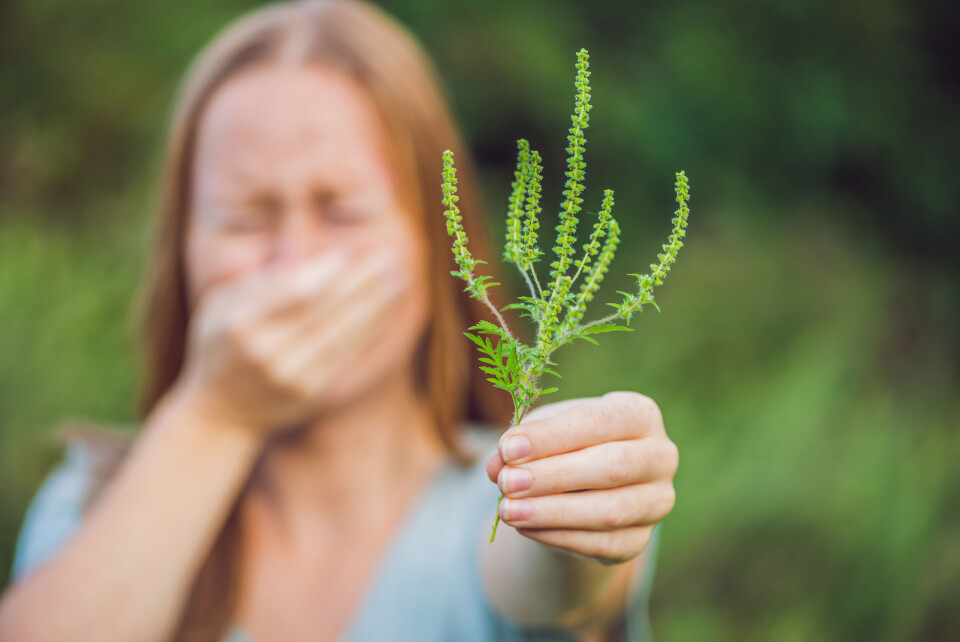-
French home energy bills to rise in 2026
Household electricity and gas bills will increase by around €50 per year
-
Social charges on UK government pensions: France residents report progress
Issue now drawing attention at the highest levels
-
Good news for many micro-entrepreneurs in France: plans to lower VAT threshold rejected by Senate
Vote reverses proposal to lower tax exemption thresholds for self-employed workers
Plan against allergenic ragweed launched in south of France
The plant and its flowers, also known as ambrosia, can cause severe allergic reactions, especially in warmer weather – and it is spreading across France

The department of the Var in southern France has launched a plan to slow the spread of ragweed – also called ambrosia or mugwort – an invasive species of flower that can cause damaging allergies in humans.
The encouraging awareness in residents, and inviting people to help authorities to build a picture of its presence by reporting it online if and when it is seen on public land. Authorities will take action against the plant if its presence is judged as a risk.
The public can signal the plant at the website. There is also an app, an email address (contact@signalement-ambroisie.fr) and a telephone number (09 72 37 68 88).
| ⚠ Cette plante exotique envahissante et nuisible à la santé humaine est désormais présente dans le .
— Préfet du Var (@Prefet83)
👁 Si vous la repérez, signalez-la ici 👉
🔴 Pour l'arracher, munissez-vous de gants
➕ d'infos 👉
Var also encourages residents who wish to pull out the plant to wear gloves when doing so.
Originally from the US, ragweed came to France in the 19th century, probably in seeds transported by boat. Three types of the plant are now in Europe, and it is being found further and further north in France, partly due to climate change.
It can spread and grow very quickly, and is most commonly disseminated in seeds or pollen transported by farm machinery and vehicles, birds, in the soles of shoes, compost, and flower pots.
Just 10 grains of pollen in one metre cubed of space or air can cause severe allergic reactions in humans, including in the nose, throat, and eyes, and can even aggravate asthma. In rare cases it can also cause a rash or aggravate eczema.
National air quality network le Réseau National de Surveillance Aérobiologique (RNSA) classifies its risk as “high”.
It comes as pollen allergies intensify in France as warm weather arrives. Rising temperatures can cause allergies to flare up even worse than normal, as more pollen is released, and air pollution worsens.
Global warming is exacerbating the problem by extending the usual pollen seasons and pushing temperatures higher, with seasons expected to be noticeably longer and more intense by the end of the
century, according to a study in the in March this year.
Related articles
Allergies in France: Do anti-Covid masks protect against pollen?























